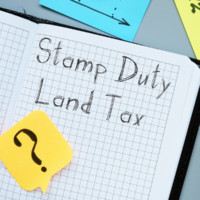
Solicitors Boodle Hatfield discovered with a Freedom of Information request that HMRC launched 529 stamp duty compliance cases last year, down 75 per cent from 2,096 cases in 2019-20.
This was the lowest level of checks into the tax for five years.
Compliance checks are deployed to uncover deliberate non-payment of stamp duty, and may also be used to challenge relief on certain transactions.
An example of this could be where a buyer’s tax bill is reduced because the property is mixed-use and qualifies for the lower commercial rate of stamp duty.
HMRC can start a compliance check at any point up to nine months from when a return is filed.
As well, while stamp duty relief drove a soaring number of property transactions, house price growth has added an extra 940,000 properties to the five per cent stamp duty band and 130,000 to the 10 per cent bracket.
Boodle Hatfield’s private wealth partner Kyra Motley said the drop in investigations was partly down to HMRC redirecting resources away from traditional compliance and into the furlough scheme during the pandemic.
“It is an astonishingly sharp drop, especially when set against the boom in residential property transactions. It seems unlikely this fall in investigations is because there has been a similarly sharp drop in wrongly claimed tax reliefs,” Motley said.
“HMRC will be keen to make up the shortfall, and we expect them to scale up now that lockdown restrictions have ended and staff have returned to a more normal working environment,” she said.
HMRC added: “Our priority during the pandemic has been tackling serious fraud and criminal attacks on the tax system.”















